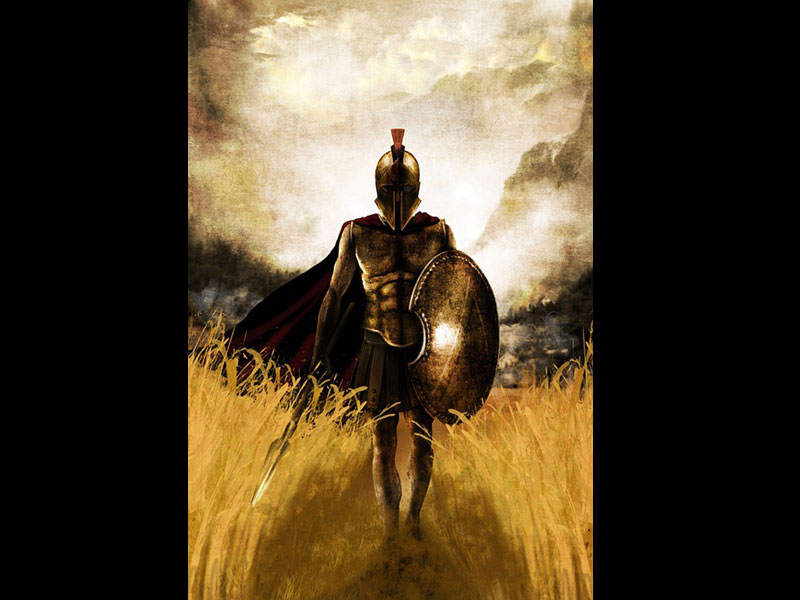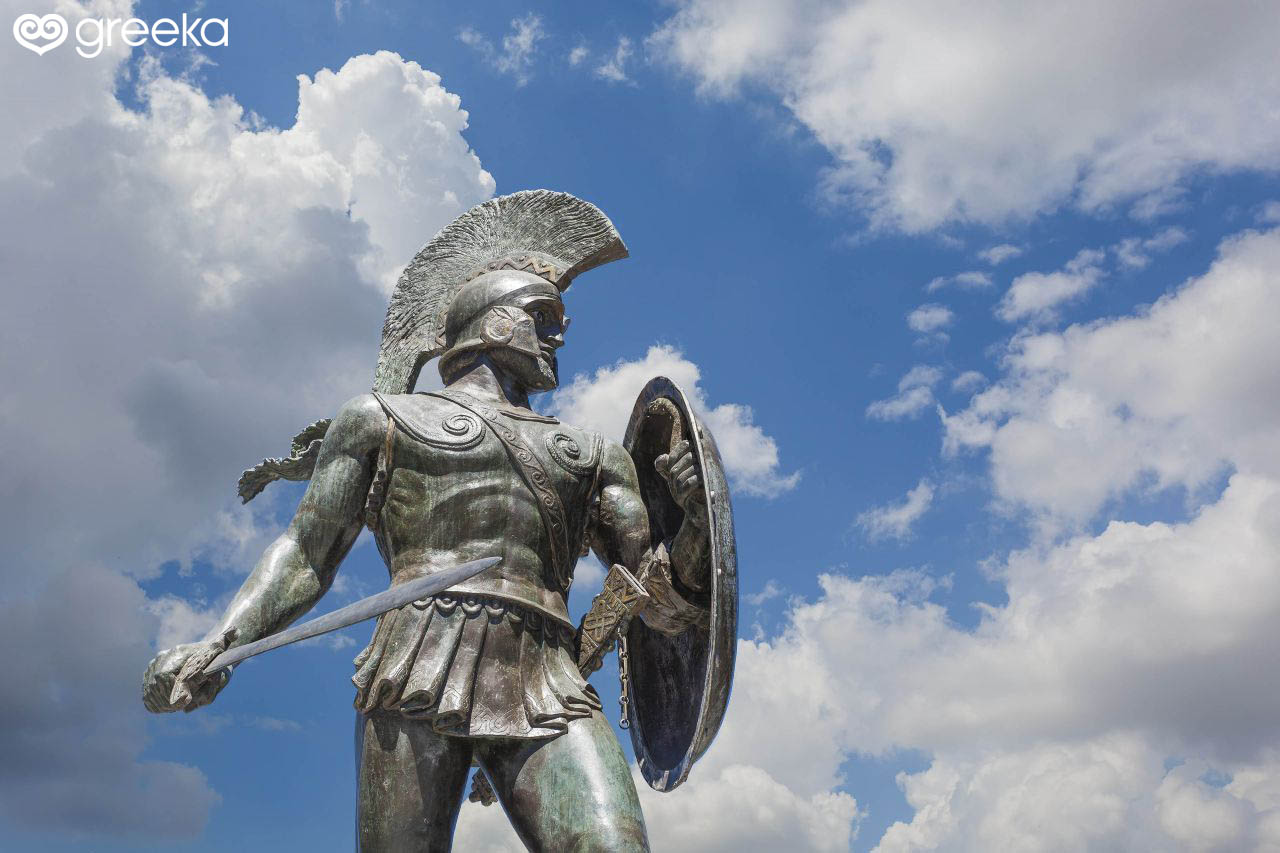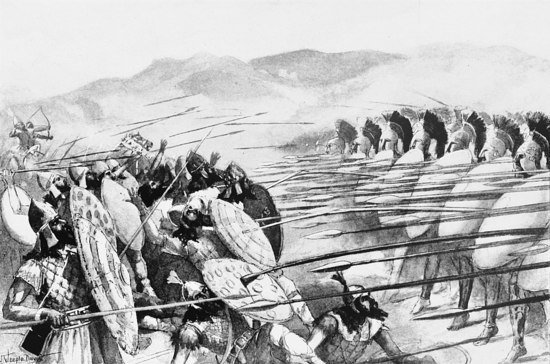The ancient city-state of Sparta, located in the Peloponnese region of Greece, was known for its highly trained and disciplined military. The Spartiates, as the citizens of Sparta were called, were famous for their bravery and martial prowess, and their armies were some of the most formidable in the ancient world.
Sparta was founded in the 9th century BCE and quickly became one of the dominant powers in ancient Greece. Its military was organized around the hoplite, a heavily armed infantryman who fought in a closely packed formation known as the phalanx. The Spartiates were required to undergo rigorous physical training from a young age and were expected to be ready to fight at any time.
One of the most famous battles in Sparta's history was the Battle of Thermopylae, which took place in 480 BCE. In this battle, a small force of 300 Spartiates led by King Leonidas held off a much larger Persian army at the pass of Thermopylae, allowing the rest of the Greek forces time to retreat and regroup. The Spartiates fought to the death, and their bravery and determination inspired the other Greek city-states to unite against the Persians and ultimately defeat them.
Sparta's military might was not limited to its hoplite infantry. The city-state also had a powerful navy, which played a key role in the Peloponnesian War (431-404 BCE), a long and bloody conflict between Sparta and Athens. Sparta was ultimately victorious in this war, cementing its status as a major power in ancient Greece.
In addition to its military successes, Sparta was also known for its strict social and political system. The city-state was ruled by two kings, and its society was divided into three classes: the Spartiates, who were full citizens with the right to vote and serve in the military; the perioikoi, who were free non-citizens who lived in Sparta but did not have the same rights as the Spartiates; and the helots, who were slaves owned by the Spartiates. The helots did the majority of the manual labor in Sparta and were subject to harsh treatment by their masters.
Despite its military prowess and strict social order, Sparta eventually declined in power and was eventually conquered by the Roman Empire in the 2nd century BCE. Today, the city-state is remembered as a symbol of strength and discipline, and its legacy continues to be celebrated in literature, film, and popular culture.
10 Famous Spartan Leaders Who Changed History

The Battle of Marathon was significant because it proved to the world that the Persians could be defeated. This practice was also intended to demonstrate to young people how an adult Spartan should never act, as self-control was a prized trait. All men were experienced warriors and served from youth to old age. First, he ordered 5,000 archers to shoot a barrage of arrows, but they were ineffective; they shot from at least 100 yards away, according to modern day scholars, and the Greeks' wooden shields sometimes covered with a very thin layer of bronze and bronze helmets deflected the arrows. They were eventually slaughtered, and Xerxes and his armies advanced. I like the theory that he returned to Sparta with great wealth and fame. Furthermore, they had to go through and overcome difficult proves, challenges of skills and strength, and they had to obey the adults unconditionally.
Spartan Battles

The legend of Thermopylae, as told by Herodotus, has it that the Spartans had consulted the O ye men who dwell in the streets of broad Lacedaemon! But he also knew a valiant effort by them could delay the Persian invasion of Greece for just long enough for the Greek people to unite. They became inured to hardship, being provided with scant food and clothing; this also encouraged them to steal, and if they were caught, they were punished — not for stealing, but for being caught. He figured the Greeks would see just how outnumbered they were and eventually surrender. Trade amongst the various Greek city states helped ensure mutual prosperity, and alliances helped to establish a balance of power that kept the Greeks from fighting too much amongst themselves, although there were conflicts. Aregion in the southeastern part of thePeloponnesepeninsula.
How Sparta Used Harsh Training to Produce 'Perfect' Warriors

Fortunately for us, the Greeks began using a common language sometime in the 8th century BCE, and this has provided us with a number of primary sources which we can use to uncover the ancient history of the city of Sparta. In Spartan society, only two types of people were allowed to have gravestones, women who died during childbirth and men who fell in battle. Xenophon wrote a comprehensive account of this period, which unsurprisingly featured his friend heavily. Read the rest of the feature in our latest issue, MHM 79. With so many kings and generals, many Spartan leaders achieved great fame for their personal achievements. But it was still an important part of the ancient world that is worth studying and understanding.
Ancient Sparta: History of the Spartans Warriors and Women

Thermopylae: the battle that changed the world 1. Here, Sparta lost the Battle of Tangara, which meant Athens was able to take control over much of Boeotia. Furthermore, Athens was now faced with the possibility of being caught in between Sparta and the now-powerful Thebes, so, in 371 BCE, Athens asked for peace. Part of the reason why this was such a significant defeat was that the Spartan army was essentially depleted. Most Greek city-states utilized the phalanx formation, which consisted of an undefined group of men in a tight, rectangular formation, and covered thoroughly with large shields on every side.







